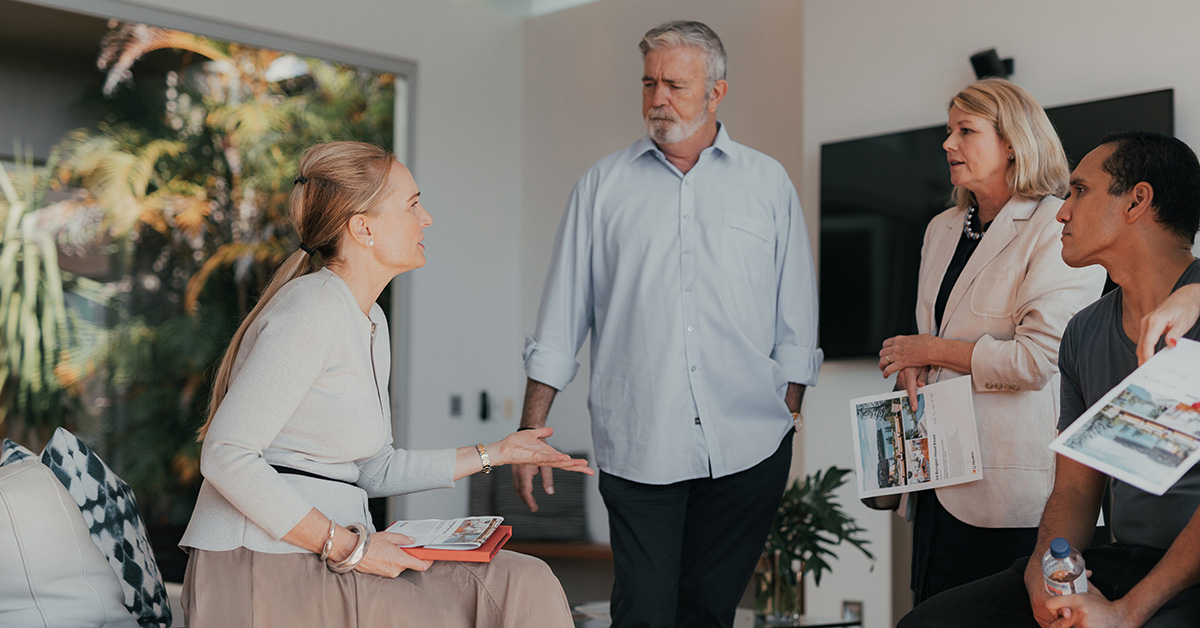Quick Guide to Buying at Auction
Key tips for buying at auction
- Research the area.
- Research comparative sales in the area most agents will help you with this.
- Attend other auctions to familiarise yourself with the process.
- Have your finance prepared early.
- Ensure you have done all your inspections prior to bidding.
- Seek legal advice if necessary .
- Have a minimum 10 percent deposit available in case you are the successful bidder.
- Bid with confidence and show your desire to own the property.
Buying at auction - prior to auction day
- Obtain a copy of the contract, provide it to your solicitor for review and advise them of your intention to purchase.
- Get in touch with an LJ Hooker property finance consultant to discuss your indicative borrowing capacity - this will help you know how high you can bid.
- Conduct all inspections (such as pest and building and council zoning) and seek legal advice prior to the auction day - this way you can bid with confidence.
- Obtain an up to date copy of the title and a LIM report (land information memorandum) your agent will help with this.
Buying at auction - on auction day
- If the auction is on site, arrive early for one last look at the property and to have any of your questions answered by the agent.
- If you are not a confident bidder, you are able to appoint someone to bid on your behalf. You will need a letter of authority to do this, which must be provided to the auctioneer before the auction starts. Discuss this with your agent a few days prior to the auction so that they can help you participate legally in the bidding process.
- When bidding commences it is important to know that people bid in different ways - some will quietly assess the crowd and only join the bidding later on, while others will happily lead the bidding. You should bid in whichever manner is comfortable for you - there is no right or wrong way to bid.
- If bidding reaches the reserve price, the property will be sold. However, if it does not, and the vendor does not accept the highest bid, the property may be passed in and negotiations may begin again immediately with unconditional and conditional prospective purchasers. It is often beneficial to be the highest bidder in this case as vendors will often extend the first right to negotiate to the highest bidder.
What is the vendor reserve price?
The "vendor reserve price" indicates the minimum price the vendor is willing to sell the property for.
When bidding has reached the vendor reserve price, the property will be sold at auction - if it does not reach this level, the property may not be sold.
If you are bidding at auction, be aware that negotiations with the highest bidder often begin immediately, so it is essential you are prepared.
What is a vendor bid?
The vendor can make a bid to help move the auction process along - or to help push the property towards the reserve price.
This bid can either be made by the vendor themselves or by the auctioneer on their behalf.
The Auckland district law Society together with the New Zealand Real Estate Institute have a standard form of contract called Particulars and conditions of sale of Real Estate by Auction. The right of the vendor to place a bid is outlined in the conduct of of Auction section clause 2.5. The Real Estate Institute Auction Code of practice states that should the Auctioneer make a bid on behalf of the vendor he/she must declare such bid to ensure the fairness and transparency of the Auction process . Clause 3.4 (a)




